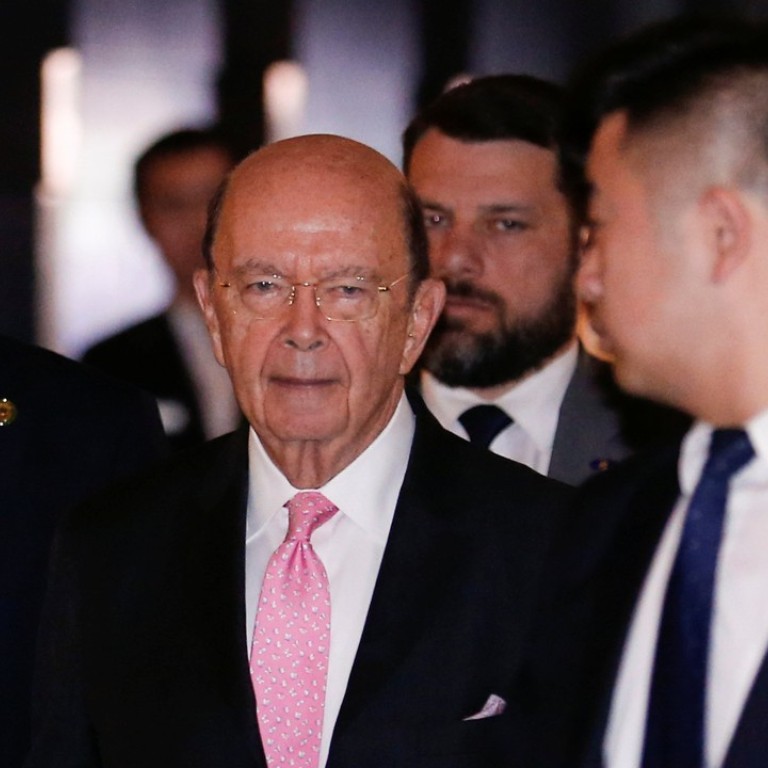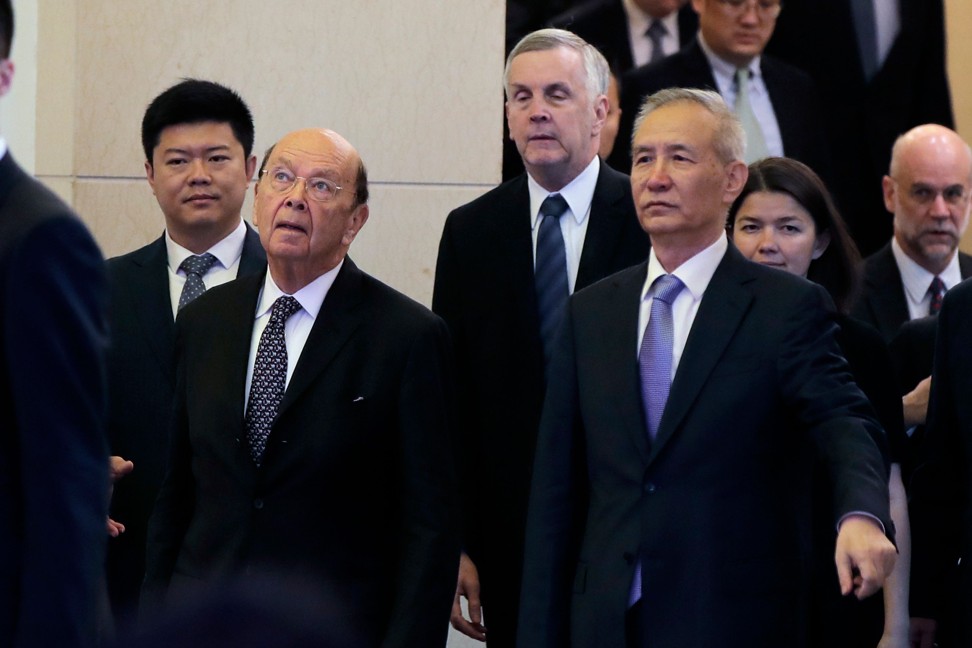
US, China discuss American exports in ‘friendly and frank’ meetings
President Trump is pressing Beijing to narrow its surplus in trade in goods with the US, which reached a record US$375.2 billion last year
US and Chinese officials have discussed specific American export items Beijing might buy as part of its pledge to narrow its trade surplus, US Commerce Secretary Wilbur Ross said on Sunday as the two sides began a new round of talks in Beijing aimed at settling a simmering trade dispute.
Ross gave no details at the start of his meeting with China’s top economic official, Vice-Premier Liu He, at the Diaoyutai State Guest House. But Chinese envoys promised after the last high-level meeting in Washington in mid-May to buy more American farm goods and energy products.
President Donald Trump is pressing Beijing to narrow its politically volatile surplus in trade in goods with the United States, which reached a record US$375.2 billion last year. He is threatening to raise duties on up to US$150 billion of Chinese imports.
“Our meetings so far have been friendly and frank, and covered some useful topics about specific export items,” Ross said.
He was accompanied by agricultural, treasury and trade officials. Liu’s delegation included China’s central bank governor and commerce minister.
There was no indication whether the talks would take up American complaints that Beijing steals or pressures foreign companies. The White House renewed a threat this week to increase duties on US$50 billion worth of Chinese technology-related goods over that dispute.
Private sector analysts say that while Beijing is willing to compromise on its trade surplus, it will resist changes that might threaten plans to transform China into a global technology competitor.
Ross had a working dinner on Saturday evening with Liu, also at the same guest house in Beijing.
China has promised to “significantly increase” purchases of farm goods, energy and other products and services. Still, Beijing resisted pressure to commit to a specific target of narrowing its annual surplus with the United States by US$200 billion.
The move reflects growing American concern about China’s status as a potential tech competitor and complaints Beijing improperly subsidises its fledgling industries and shields them from competition.
Foreign governments and businesses cite strategic plans such as “Made in China 2025,” which calls for state-led efforts to create Chinese industry leaders in areas from robots to electric cars to computer chips.
Trump also has threatened to raise tariffs on a further US$100 billion of Chinese goods, but gave no indication this week whether that would go ahead.
Earlier, China responded with a threat to retaliate with higher duties on a US$50 billion list of American goods including soybeans, small aircraft, whisky, electric vehicles and orange juice. It criticised Trump’s move this week and said it reserved the right to retaliate but avoided repeating its earlier threat.
Trade analysts warned Ross’s hand might be weakened by the Trump administration’s decision Thursday to go ahead with tariffs on steel and aluminium imports from Canada, Europe and Mexico.
That might alienate allies who share complaints about Chinese technology policy and a flood of low-priced steel, aluminium and other exports they say are the result of improper subsidies and hurt foreign competitors.


